MODBUS, especially the binary serial RTU protocol through RS485 interface is still popular - sufficiently popular to create a market for ultra-cheap (hobby-grade) components, e.g. "STM8S103 Relay Control Board" with barely usable MODBUS firmware

or the infamous Chinese "USB RS485 Adapter Black+Green" for less than $1 (including shipping).
For some time now I had fun with implementing MODBUS, testing it against frameworks and getting things running (or not) using Chinese gadgets. It turned out that finding the culprit sometimes takes time.
Lately, I played with KiCad, more for occupational stress relief than for creating something useful. But what the heck, why should this small STM8S001J3 MODBUS node disappear in the stream of the @oshpark shared projects list, eceiving no love?
 This project shall make some attempts more visible and it I hope that it will lead to a usable platform soonish.
This project shall make some attempts more visible and it I hope that it will lead to a usable platform soonish.
 Thomas
Thomas
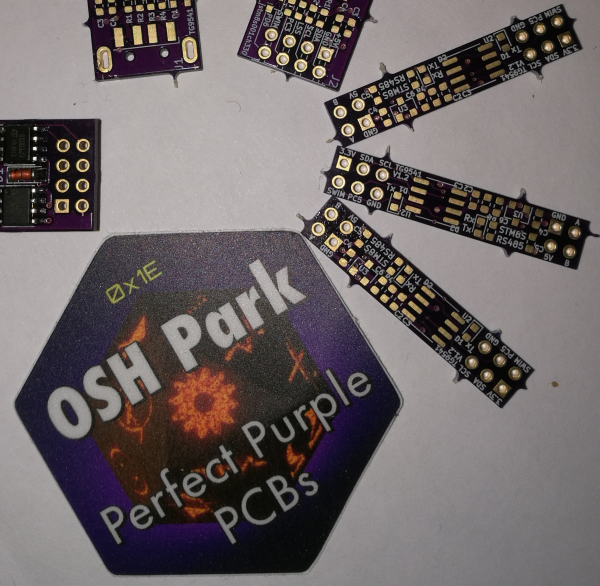


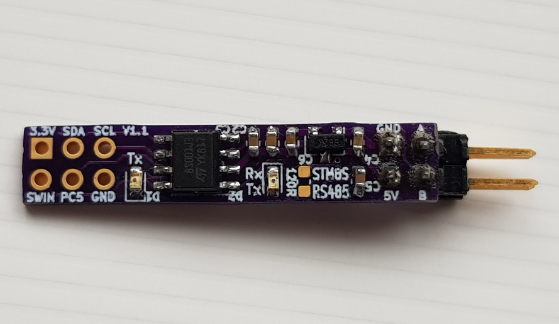
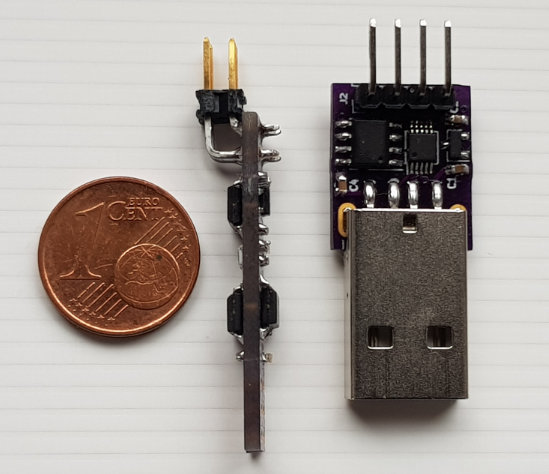
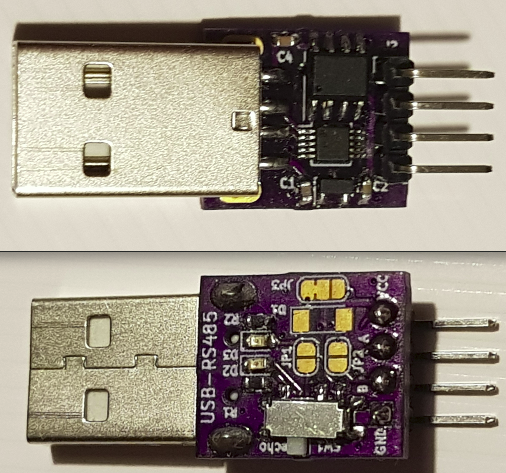
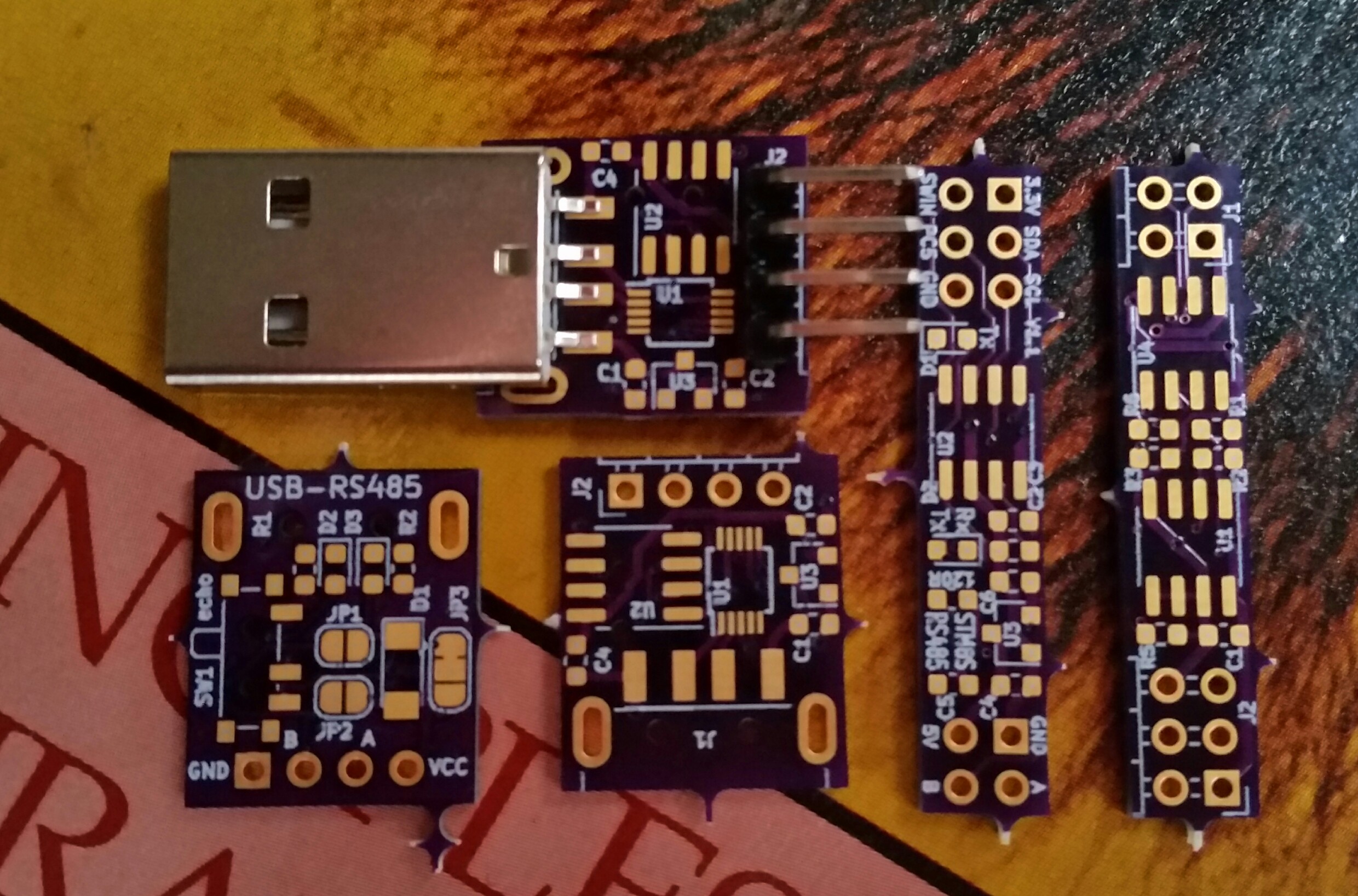


Hello, what is the modbus rtu program for stm8s001rs485 hardware? Can you share it? Thank you